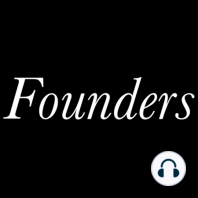65 min listen
#128 Henry Leland (Cadillac)
FromFounders
ratings:
Length:
70 minutes
Released:
May 31, 2020
Format:
Podcast episode
Description
What I learned from reading Master of Precision: Henry Leland by Ottilie Leland and Minnie Dubbs Millbrook.[0:17] Henry Leland laid the foundation for the future of American industry. He had established manufacturing procedures never previously so effectively employed and took a position of leadership. In the next decades would be comparable in statute with, although quite different from, William Durant, Henry Ford and Alfred Sloan. [0:40] It should be pointed out that Leland's contribution to the development of the motor car was the establishment of high standards of manufacturing. [2:33] Henry Leland always got deep satisfaction out of anything which was made right. He had—in high degree—the pride of craftsmanship that had marked the master workman down the centuries. [3:07] He developed the Cadillac, the self-starter, The Lincoln car, held up high standards of performance for the industry, and established the first notable school of automotive mechanics. [4:05] A lesson Henry Leland learned from his Father: He bequeathed a singularly trustful disposition to his son, who could never believe that other men were not inherently as good and honorable as he himself. He was several times to pay a stiff penalty for this faith in human nature. [4:56] A lesson Henry Leland learned from his Mother: “There is a right way and a wrong way to do everything. Hunt for the right way and then go ahead.” This simple admonition was to become a creed that would govern all of his actions as he rose in industry. [6:10] He lives through the beginning of two industries in his life: Manufacturing in general and the automobile industry in specific. [7:24] Henry Leland was not sure he wanted to become an apprentice machinist. The hours were long—10 hour days, 6 days a week—and most factories did not pay high wages. Moreover, farming was still the traditional American operation, which offered a possibility of independence and did not shut a man indoors with noisy machinery. [9:06] Henry was already discovering the education that could be mined from books. At first, the fond of reading, he had been attracted by cheap adventure novels, which he borrowed from the local library. One night a stranger there, seeing what he was taking out exclaimed, “Surely don't read that trash!” Henry replied, “What better use can I make of my time than to read?” The stranger answered, “It makes a lot of difference what you read,” and then suggested some better books. The episode was a revelation to young Leland and he was soon reading volumes that acquainted him with American genius in literature, government and invention. [9:55] Abraham Lincoln was his idol. Lincoln Motor Company—which Henry founds when he is in his 70s— is named after Abraham Lincoln. If we want to continue the conversation that Steve Jobs and Larry Ellison were having [about who is history’s greatest person] in The Billionaire and The Mechanic—Jobs said Gandhi. Ellison said Napoleon. Leland’s answer would be Abraham Lincoln. [12:05] Even if he experienced a financial penalty, Henry Leland wanted to do the honorable thing. [12:44] Henry wanted to work where he could render the greatest service to his country [during The Civil War]. He had learned that the U.S. Armory needed expert mechanics, and he had determined to help with war production. The particular lesson he learned in the Armory was the value of order and neatness in a work shop. Everything was clean and systematic, a state of affairs not common in early factories. [14:37] Precision was his god. His personal work was outstanding. [14:56] The discipline and subordination of factory life ran counter to American individualism. [16:31] A nervous breakdown drove him from the shop to the far for rest. [16:48] His mind, independent and teaming with ideas, made it difficult for him to work with others. He longed for a business in which he might put his theories to work but he had no money, a family to support, and his father and mother were in need of ai
Released:
May 31, 2020
Format:
Podcast episode
Titles in the series (100)
#10 Shoe Dog: A Memoir by the Creator of Nike: What I learned from reading Shoe Dog: A Memoir by the Creator of Nike by Phil Knight. by Founders
